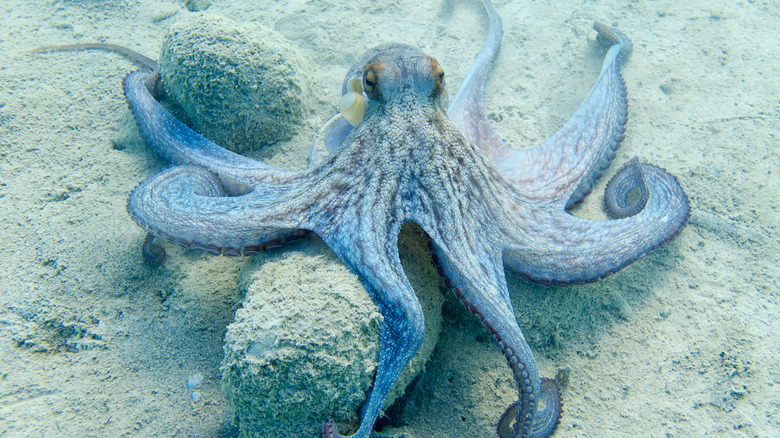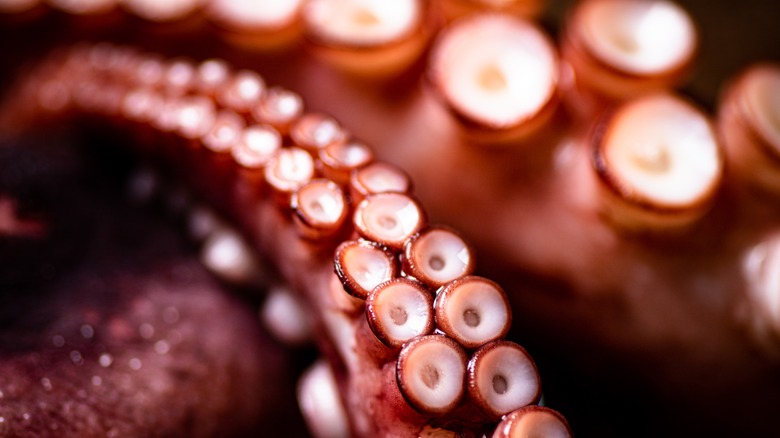This Robotic Octopus Glove Could Give You Super Strength Underwater
Underwater, an octopus has an advantage when it comes to grabbing objects. Despite the watery environment, they can hold onto surfaces with ease and a surprisingly strong amount of force. This is made possible mainly by the suction cups an octopus has on its tentacles. These suckers have evolved many mechanisms that make them phenomenal at grabbing surfaces underwater, and scientists want to use these same methods to create a glove that can achieve something similar.
As Scientific American explains, octopus suckers work mainly by the cavity located above them as well as pliable surroundings that allow the suckers to create a seal using pressure differences. Scientists have also found that octopus suckers have sensors that tell them what kind of object they are holding onto, allowing for even better seal creation and gripping, as well as detachment from the object. Researchers from Virginia Tech and the University of Nebraska-Lincoln have used this past research on octopus tentacles and suckers to go on to create the Octa-glove, which mimics these mechanisms in surprising ways.
What is the Octa-glove?
The Octa-glove, which takes heavy inspiration from octopus tentacles and their suckers, allows for a strong gripping force while still being able to easily detach. As explained in the researchers' paper in Science Advances, the Octa-glove mimics an octopus' ability to grasp firmly onto the objects it needs to; it uses a micro-LIDAR optical proximity sensor array to determine the proximity of the object in order to attach to and detach from it with ease, according to Virginia Tech. This works for all different types of objects, even ones that would normally be very difficult to grab underwater, such as soft or round objects.
This innovative technology may be immensely useful to those working underwater, including scuba divers, scientists, builders, and more. Finding an adhesion technique that works underwater is a difficult endeavor, especially one that allows for a strong grip. But, much like studying the bird to build the plane, nature once again helps us advance technology by providing us with blueprints. With that said, this is just the start of the team's efforts.
Ravi Tutika, one of the researchers behind the project, explained as part of Virginia Tech's announcement, "This is certainly a step in the right direction, but there is much for us to learn both about the octopus and how to make integrated adhesives before we reach nature's full gripping capabilities."

